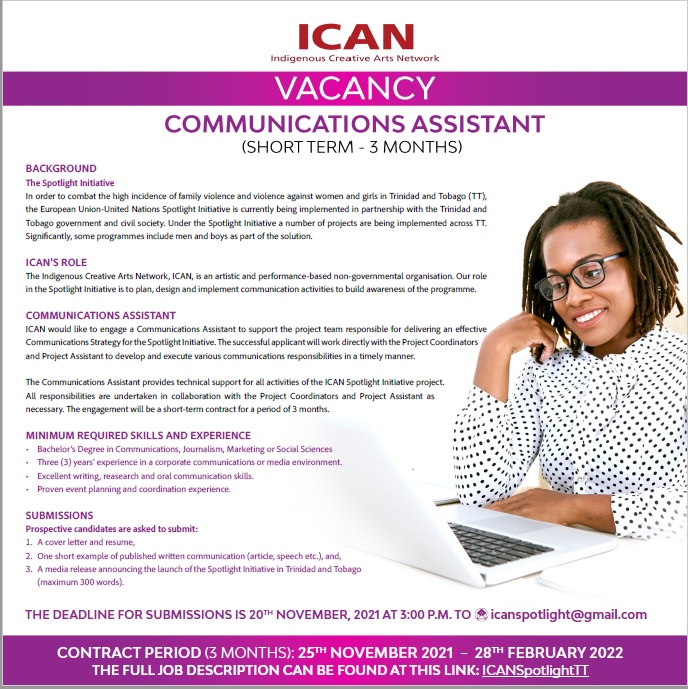There is an erroneous and misguided conversation which has been gaining momentum over the past few years regarding the Carnival of the people of Trinidad and Tobago. This conversation, perpetuates centuries-old colonial and elitist perspectives of our celebration, it disconnects the people from this expression of themselves, and trivialises the labours of thousands of citizens, over many months to create the very festival that is imitated all over the world. Further, this conversation which labels our Carnival a ‘distraction’, displays ignorance of the spiritual, resistance and ritualistic underpinnings of the celebration. It is therefore time to articulate a more grounded philosophical perspective, and begin a new and accurate conversation. To be clear, Carnival is not just a party.
Rooted in resistance against enslavement, the burning of the canes (fires most likely set by the enslaved) and the walk with flambeaux in the early hours to extinguish these fires, is one powerful symbol of freedom. It is also documented that the baring of breasts, bottoms, private parts and menstrual cloths was another act of defiance. In being deliberately vulgar and shocking, the Barrack Yard performers of the ‘Jamette Carnival’ claimed the Carnival space for themselves and laughed at the indignation and hypocrisy of the upper-classes, who they knew did not behave much better behind closed doors. In 1881, stick-fighters and ordinary people of the depressed communities of Port of Spain and Laventille successfully beat the colonial administration and thwarted their plan to do away with the Carnival altogether. It is important to note that our Carnival was originally celebrated around Emancipation time in August, and had nothing to do with the commemoration of Easter. This change of date from August to February was imposed by the colonial administration as part of its efforts to control the revelry and the commentary of ordinary people.
Today, the Ole Mas, Calypso and Traditional Carnival continue that critical tradition of commentary on social and political issues. They provide an alternative voice, another kind of conversation that is essential to our democratic traditions.
Additionally, our citizens, including children, students, teachers and artists give of their talent and their love of this Festival to produce the ‘Greatest Show on the Earth’ in all its aspects. Why then should they be made to feel guilty for this? Are they not the ones in the pan yards, the mas camps and the Calypso tents night after night, yet still show up for school and work the following day? Why should this work not be acknowledged with even one day of rest? Trinidad and Tobago has the dubious distinction of being one of the countries in the world with the most public holidays. Surely, one of these days could be substituted to accommodate our national festival?
Further, it is time to conceptualise our Carnival not as two days, but as a week-long opportunity to incorporate Carnival as an educational tool in our schools and institutions of learning, provide earning opportunities for ordinary people and rejuvenate our city centres. Why is there not a curriculum module for instance where we can explore our history through the Calypso? Our Carnival needs to be part of our social history, part of claiming ourselves and rejecting of a Eurocentric perspective of who we are. Why is investment into the Pan Yards and Gayelles left to the uncertainty of private sector contributions? We need to use these spaces as centres for the nurturing of a sense of manhood, nationhood and pride in all of the music and art that we create every year.
We need to teach about the icons who have been at the forefront of establishing our Carnival globally such as Claudia Jones of Belmont, and devise a way to replicate the success of Aaron Duncan across our primary school system teaching the use of language, self-confidence and other life skills through the Calypso. Our schools and monuments must bear the names of the carriers of our culture. And the conversation needs to impact positively on the young people from the so-called ‘hotspots’, from whose belly the Carnival came.
This must be the vision!
People of Trinidad and Tobago, do not allow yourselves to be bullied into believing that your effort is only about a disposable two-day fete, a distraction or a bacchanal. Take the time to understand Carnival beyond the superficial and take back the conversation. Carnival is not just a party. It is an integral expression of freedom and resistance, and holds immense potential to impact us positively as a nation.
Carnival is ours. Let us know it, defend it and claim it!
=====
Our NGO – The Indigenous Creative Arts Network or ICAN – was recently established and our workshops begin after Carnival. Contact us to book training sessions and cultural programmes for your organisation, school or community. Support our work by purchasing our educational audio-visual materials, books and cultural products. Like our Facebook page, follow us on Twitter and enjoy our videos on You Tube: Idakeda Group Online.
Thank you for your support of our work and stay with us on our journey…




